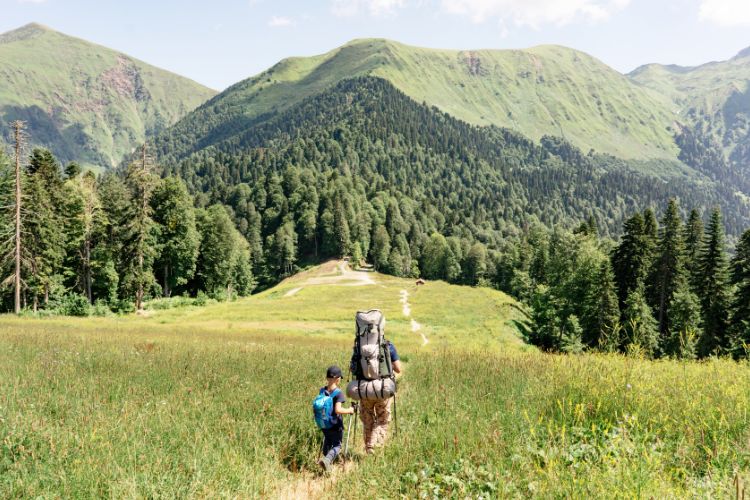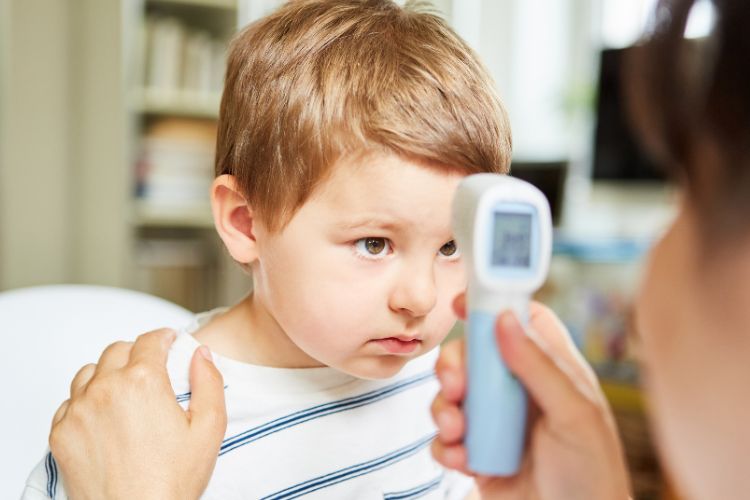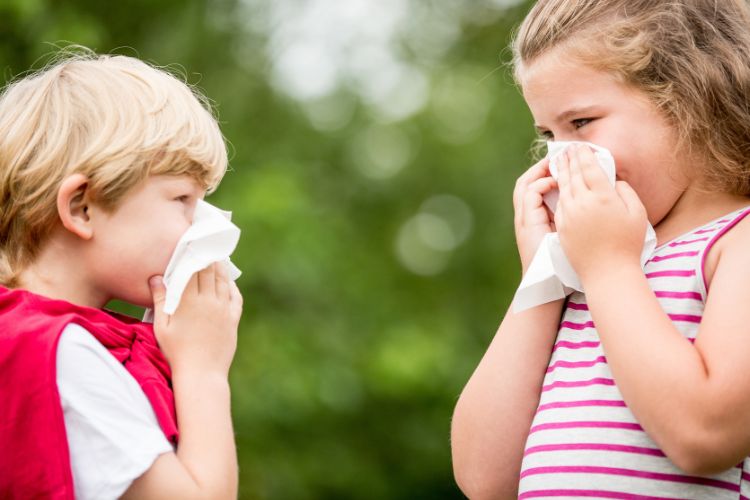Camping trips are a fantastic way for families to bond, explore the great outdoors, and create lasting memories. However, as a parent, you may occasionally face the dilemma of whether your child can go camping with a fever. While camping with a sick child can be challenging, it’s essential to make an informed decision that prioritizes their health and safety.
Can My Kid Go Camping with a Fever? It is generally not advisable for a child with a fever to go camping. Fever can be a sign of an underlying illness, and exposing a child to the elements and outdoor conditions during a camping trip may worsen their health and discomfort.
Contents
Can My Kid Go Camping with a Fever
| Camping with a Child with a Fever | Description |
|---|---|
| Not Advisable | It is generally not advisable to take a child with a fever camping as it can worsen their health and discomfort, especially if the fever is a sign of an underlying illness. |
| Health and Well-being Priority | The child’s health and well-being should be the top priority, and seeking appropriate medical attention to diagnose and treat the fever is essential before considering outdoor activities like camping. |
| Risk of Exposure | Camping exposes children to the elements, varying temperatures, and potential allergens, which can exacerbate the symptoms of a fever and delay recovery. |
| Dehydration Concerns | Fever can lead to increased fluid loss, and camping may limit access to adequate hydration, further complicating the child’s condition. |
| Contagion Risk | If the fever is due to a contagious illness, taking a child camping can risk spreading the illness to others in the camping group. |
In most cases, it is not advisable for a child with a fever to go camping, and seeking medical guidance should be the first step to ensure their recovery and safety.
Key Takeaways
- Camping with a child who has a fever is generally not advisable as it can worsen their health and discomfort.
- Prioritize the child’s health and well-being by seeking appropriate medical attention and treatment for the fever before considering outdoor activities like camping.
- Camping exposes children to varying temperatures and allergens, which can exacerbate fever symptoms and hinder recovery.
- Fever can lead to increased fluid loss, and camping may limit access to adequate hydration, posing a risk to the child’s condition.
- If the fever is due to a contagious illness, taking a child camping can risk spreading the illness to others in the camping group, making it important to avoid camping until the child is no longer contagious.

Can My Kid Go Camping with a Fever: Understanding the Fever
Before delving into the decision-making process, it’s crucial to understand what a fever is and when it becomes a cause for concern.
What Is a Fever?
A fever is a temporary increase in body temperature, often a sign that the body is fighting off an infection or illness. Normal body temperature varies slightly but typically falls between 97°F (36.1°C) and 99°F (37.2°C). A fever is generally defined as a body temperature of 100.4°F (38°C) or higher.
Common Causes of Fever in Children
Fevers in children can have various causes, including viral or bacterial infections, teething, immunizations, and exposure to extreme weather conditions. It’s essential to identify the underlying cause of the fever to determine whether it’s safe for your child to go camping.

Factors to Consider
When deciding whether your child can go camping with a fever, several factors come into play:
1. Severity of the Fever
The first and most crucial factor to consider is the severity of your child’s fever. A low-grade fever (slightly above 100°F or 38°C) may be manageable, but a high fever (above 102°F or 38.9°C) can indicate a more significant underlying issue and may not be safe for camping.
2. Other Symptoms
Take into account any other symptoms your child may be experiencing. If the fever is accompanied by severe coughing, congestion, difficulty breathing, or signs of dehydration, it’s advisable to seek medical attention and postpone your camping trip.
3. Age and Health of Your Child
Consider your child’s age and overall health. Younger children, especially infants and toddlers, may be more susceptible to illnesses and may not handle camping in adverse conditions as well as older children. If your child has a preexisting medical condition, consult their healthcare provider before making a decision.

4. Destination and Weather
The camping destination and weather conditions play a significant role in your decision. Camping in extreme heat or cold can exacerbate your child’s condition, so choose a suitable location and season for the trip.
5. Access to Medical Care
Evaluate the proximity of medical facilities and emergency services to your camping location. If you’ll be far from medical help, it’s riskier to go camping with a sick child.
Making the Decision
Now that you’ve considered the factors, it’s time to make an informed decision:
Camping with a Mild Fever
If your child has a low-grade fever (around 100°F or 38°C) and is otherwise in good health, camping may still be an option. However, take the following precautions:
- Keep a close eye on your child’s temperature and overall condition.
- Ensure your child stays well-hydrated and gets plenty of rest.
- Bring appropriate fever-reducing medication (as advised by your child’s healthcare provider) and a thermometer.
- Pack extra clothing and bedding to help regulate your child’s body temperature in case it fluctuates during the trip.
- Be prepared to cut the camping trip short if your child’s condition worsens.
Postponing the Camping Trip
If your child has a high fever (above 102°F or 38.9°C), is experiencing severe symptoms, or has a preexisting medical condition, it’s advisable to postpone the camping trip. Here’s what you should do:
- Consult your child’s healthcare provider to determine the cause of the fever and receive appropriate treatment.
- Focus on your child’s recovery and well-being, postponing the camping trip until they are fever-free and in good health.
- Consider rescheduling your camping trip for a more suitable time when your child is feeling better and able to fully enjoy the experience.
Tips for Camping with a Recovering Child
If you decide to go camping with your child after they have recovered from a fever, follow these tips to ensure a safe and enjoyable experience:
1. Check with the Healthcare Provider
Before departing, consult your child’s healthcare provider to confirm that it’s safe for them to engage in outdoor activities and that their health has fully recovered.
2. Pack Essentials
Ensure you have all the necessary supplies, including medications, first-aid items, and any specific items recommended by your child’s healthcare provider.
3. Choose a Comfortable Campsite
Opt for a campsite that provides a comfortable and safe environment for your child. Look for shaded areas, proper restroom facilities, and easy access to clean water.
4. Monitor Their Condition
Keep a watchful eye on your child throughout the camping trip. Check their temperature regularly and be prepared to take action if their fever returns or if any other symptoms worsen.
5. Stay Hydrated and Rested
Encourage your child to drink plenty of fluids and get enough rest during the camping trip. Adequate hydration and rest are essential for recovery.
6. Limit Physical Activity
Adjust your camping activities to accommodate your child’s condition. Avoid strenuous hikes or activities that could strain their recovering body.
7. Be Flexible
Stay flexible with your plans and be prepared to cut the trip short if your child’s condition deteriorates or if they aren’t comfortable with the camping experience.
Conclusion
Deciding whether your child can go camping with a fever requires careful consideration of their condition, age, overall health, and the camping environment.
While a mild fever in an otherwise healthy child may not necessarily warrant canceling your camping plans, a high fever or severe symptoms should prompt postponement until your child has recovered.
Prioritize your child’s health and well-being above all else, and consult with a healthcare provider for guidance when necessary.
When you do decide to go camping with a recovering child, take precautions, stay vigilant, and be prepared to adapt your plans to ensure a safe and enjoyable outdoor experience for your family.






